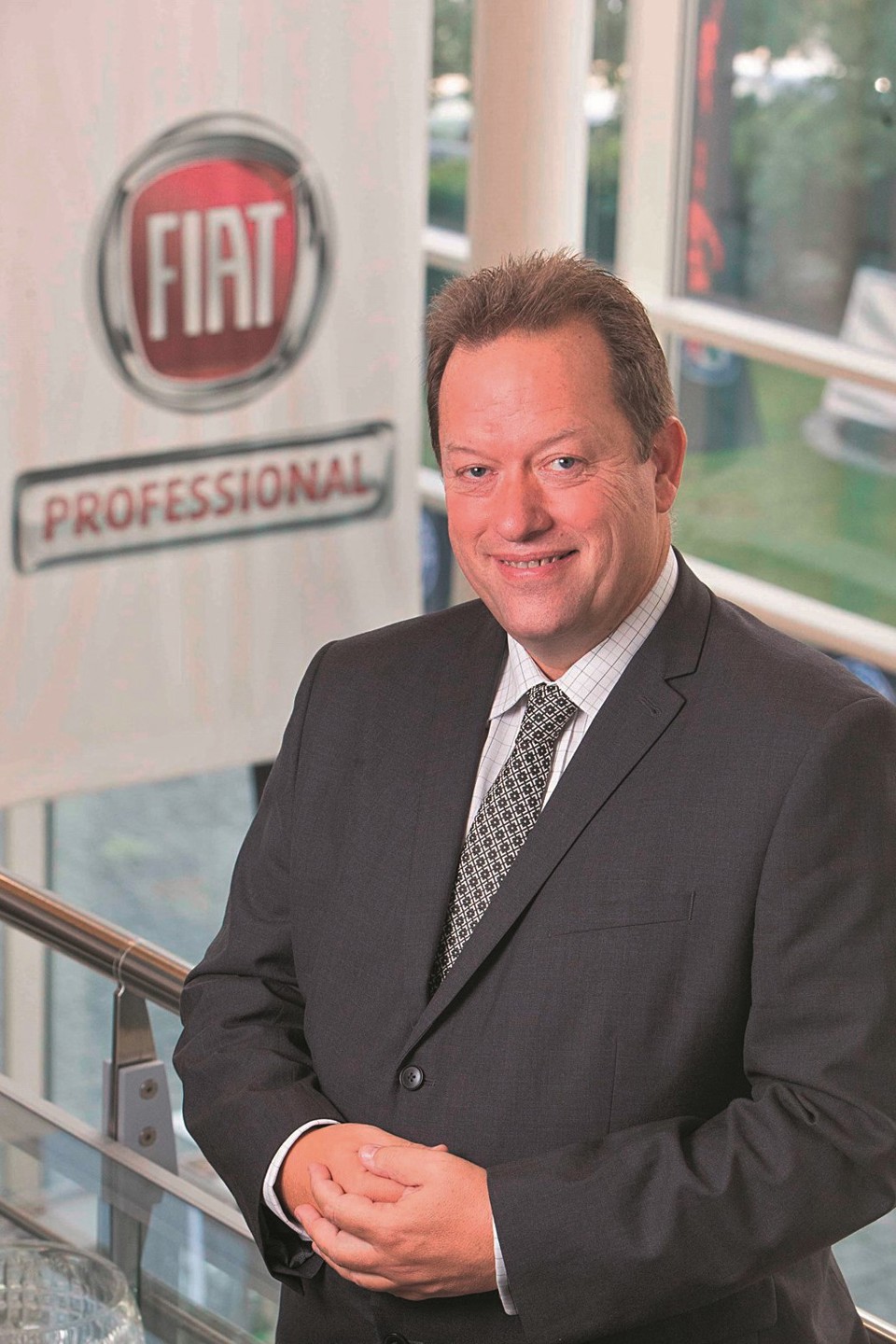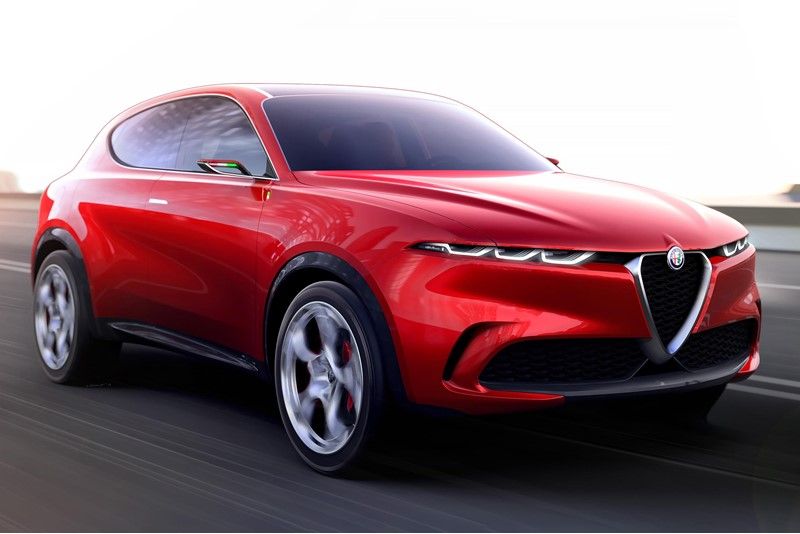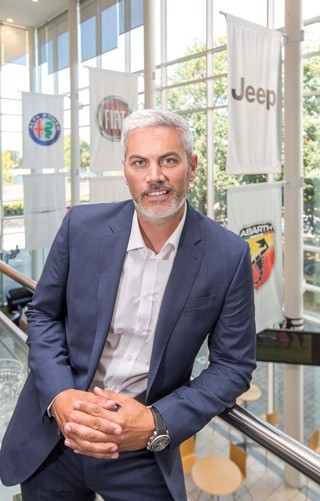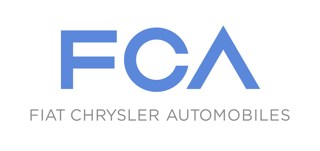As he nears his two-year anniversary as FCA fleet and remarketing director, Andy Waite is starting to plan for a roll-out of electric product that will put the organisation’s five brands at the heart of the alternative fuel revolution.
Until now, FCA has taken a cautious approach to electric vehicles, quietly watching while some rivals hurry to market – not always with total conviction or, indeed, availability of supply. But Waite is confident the time is now right.
“From the fleet driver to the fleet manager, momentum is building,” he says.
Orders are already open for Fiat’s first electric van, the Ducato Electric – deliveries start early 2020. The UK, says Waite, is “a prioritised market” for volume.
With full electric capability available across the entire range and multiple configurations to match the diesel engine line-up, the Ducato tops out at 4.25 tonnes with maximum payload of 1.9 tonnes.
“There will be no compromise over diesel,” says Waite. “This is FCA product that is certified by FCA engineers and made in Sevel (Italy).”
Two range options will be offered, based on a modular battery configuration. The shorter-range Ducato has the full 1.9-tonne payload; an extended range model that uses more batteries will travel further but the compromise is a lower load capacity.
The drive to electric ramps up considerably during the course of 2020, with the Jeep Renegade plug-in hybrid SUV, Alfa Romeo Tonale plug-in hybrid (pictured) and all-electric Fiat 500 on the launch list. The latter, due in Q2, will be produced at FCA’s newly refurbished Mirafiori plant in Italy, part of the company’s commitment to design and engineer all electric models in-house. “It isn’t a third party solution,” stresses Waite, with evident pride.
Petrol and diesel still have role
Despite the flurry of activity in electric technology, FCA staunchly believes petrol and diesel still have a role to play. The company is not letting up in its research and development of the traditional internal combustion engine (ICE).
“We have no strategy to be ICE-free in the next few years; we will continue to improve our core combustion engine products,” Waite says. “And it is still worth looking at our CNG (compressed natural gas) products where we are the market leader in Europe.
“The evolution of alternative fuels has many directions and there is a place for the different powertrains with the choice dependent on the use and needs of the individual fleet.”
FCA is stepping up its pursuit of fleets by highlighting its broad spread of vehicles, from small cars to sports cars and SUVs to large vans. The brand portfolio has the potential to appeal to restricted badge fleets, large corporates, user-choosers, job-need fleets and SMEs alike.
“From the practical to the emotional, we can do it all with one conversation. There aren’t many fleets that don’t have a fond memory of at least one of our models,” Waite says. “It doesn’t win business, but it does allow us to start the conversation about how we can add value to their business and support them with cost-effective solutions.”
The conversations are beginning to bear fruit, although fleet and leasing registrations across all brands are down year-on-year, albeit in line with the overall market performance.
Waite believes Jeep and Alfa Romeo offer the greatest potential for growth in fleet over the next couple of years. Jeep’s product plan includes six model launches or revisions by 2022.
“As a challenger brand, we have to win people over,” he says. “When they get into a Jeep or Alfa Romeo, drivers are surprised how much they live up to the brand values. They deliver whether that’s style and driver appeal, or capability and robustness.”
Also on high on the agenda is another reduction in short-term rental volumes. Fiat, accounting for the biggest proportion of FCA rental registrations by far, cut its volumes by 61% last year; Jeep was down 40%.
“We see a need to further improve our residual values (RVs) by managing our shorter-cycle business. We reduced it last year and we are further reducing it in 2019 – the thinking is by half again,” Waite says.
He’s currently bang on target – after Q3, Fiat rental registrations were down 50%.
Rises in RV forecasts
FCA has kept the pricing guides informed about its rental targets, which has resulted in consistent rises in RV forecasts for many models this year. Waite is confident the residuals improvements will continue, helping to strengthen the total cost of ownership competitiveness of FCA cars.
Waite has no doubt that FCA can boost its true fleet sales across the key fleet segments, with his dealer network playing an important role.
“We are starting from a low market share so there are plenty of opportunities. We have developed our activity through our dealer network for SME and small fleet and we have restructured our programme,” he says.
The public sector is another target market, with FCA riding the success of its light commercial vehicles in the ambulance sector.
“Now, through CCS (the local authority procurement service), we are on the police framework. There are a number of areas of the public sector supply chain where we can make progress,” Waite says.
Meanwhile, in corporate, FCA will continue to work closely with colleagues in mainland Europe to support negotiations with multi-national fleets.
“As our product offering grows, we have the right opportunities to develop the right relationships and gain business in 2020,” Waite says.
He adds: “Our future product plans look very exciting. The next 24 months will be one of the biggest and most exciting periods of change the group has seen since it was created.”
























Login to comment
Comments
No comments have been made yet.